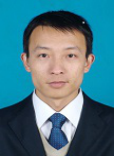学习经历
2010.03-2012.12 哈尔滨工业大学管理学院 技术经济及专业 管理学博士学位
2007.09-2009.06 中国地质大学(武汉)经管学院 资源产业经济 工学硕士
2002.09-2005.06 中国地质大学(武汉)经管学院 行政管理 管理学学士(提前毕业)
工作经历
2013.04-至今 太原理工大学经济管理学院
2009.07-2010.12 河北农业大学华豫学院
2006.07-2007.06 中国地质大学江城学院
研究项目
科研项目
1.人才项目
[1] 姚西龙.山西省高等学校创新人才支持计划(中青年拔尖人才)(晋教科函[2019]6号),起止时间:2019.07-2022.07,5万元.
[2] 姚西龙. 山西省高等学校创新人才支持计划(优秀青年学术带头人)(晋教科函[2016]7号),起止时间:2016.05-2019.04,5万元.
2.科研项目
[1] 山西省哲学社会科学项目“山西省煤炭去产能政策的经济环境效益研究” (项目编号:2019B087),起止时间:2019.10.01-2020.10.01, 经费:1万,主持
[2] 山西省教育厅优秀成果培育项目 “When will wind energy achieve grid parity in China? – Connecting technological learning and climate finance” (项目编号:RD1900000878),起止时间:2019.7.01-2021.12.31, 经费:5万,主持
[3] 国家自然科学基金项目青年项目 “省域装备制造业绿色创新效率评价、空间关联及提升路径研究” (项目编号:41401655),起止时间:2014.01.01-2017.12.31, 经费:23万,主持
[4] 教育部人文社会科学研究项目 “废弃煤炭井巷抽水储能的综合效益评价及对策研究” (18YJC790201),起止时间:2018.07.24-2020.12.31, 经费:8万,主持
[5] 山西省软科学项目“财政资金支持企业创新的机制与措施研究”(2016041001-4),起止时间:2016.07.01-2018.12.31, 经费:2万,主持
[6] 山西省高等学校人文社科重点研究基地项目 “煤炭产业绿色经济效率评价及提升路径研究” (2016311),起止时间:2016.07.01-2018.12.31, 经费:5万,主持
[7] 山西省教育厅哲学社科项目 “山西省能源产业绿色创新能力评价及提升路径研究” (2014218),起止时间:2014.07.01-2016.12.31, 经费:1万,主持
科学研究
科研论文
[1] Yao Xilong, Lei Haitao,Yang Lili, Shao Shuai*. Low-carbon transformation of the regional electric power supply structure in China: A scenario analysis based on a bottom-up model with resource endowment constraints[J]. Resources, Conservation and Recycling, 2021,167: 105315.
[2] Li Xiaoyu, Yao Xilong*. Can energy supply-side and demand-side policies for energy saving and emission reduction be synergistic?--- A simulated study on China's coal capacity cut and carbon tax [J]. Energy Policy, 2020,138: 111232.
[3] 姚西龙,葛帅帅,郭枝,栗继祖,韩云菲,刘昕等. 废弃煤炭井巷抽水储能的全生命周期成本研究[J].中国矿业,2020,29(10):50-56+65.
[4] Ge Shuaishuai, Gao Yantao*, Yao Xilong*, Liu Jia. Can pumped-storage power in underground coal mine reduce carbon emissions? [J].Journal of Cleaner Production, 2020, 255: 120344.
[5] Yao Xilong*, Zhang Xiaoling*, Guo Zhi. The tug of war between local government and enterprises in reducing China's carbon dioxide emissions intensity [J]. Science of The Total Environment, 2020,710: 136140.
[6] Guo Zhi, Ge Shuaishuai, Yao Xilong*, et al. Life cycle sustainability assessment of pumped hydro energy storage[J]. International Journal of Energy Research, 2020, 44: 192-204.
[7] Lei Haitao; Yao Xilong*, Zhang Jin. The competitiveness of provincial electric power supply in China: Based on a bottom-up perspective[J]. International Journal of Electrical Power & Energy Systems, 2020, 116, 105557.
[8] Yao Xilong*, Guo Zhi, et al. Reduction potential of GHG emissions from municipal solid waste incineration for power generation in Beijing[J]. Journal of Cleaner Production, 2019, 241, 118283.
[9] Liu Y , Yao X , Wei T . Energy efficiency gap and target setting: A study of information asymmetry between governments and industries in China[J]. China Economic Review, 2019, 57:101341.
[10] Gao Yantao, Yao Xilong*, et al. Dynamic effect of environmental tax on export trade: based on DSGE mode[J]. Energy & Environment, 2019,30(7),1275-1290.
[11] Yao Xi-Long, Kou Dong, Shao Shuai*, et al. Can urbanization process and carbon emission abatement be harmonious? New evidence from China[J]. Environmental Impact Assessment Review, 2018, 71:70-83.
[12] Yao Xi-Long*, Feng Wei, Zhang Xiaoling*. Measurement and decomposition of the industrial green total factor water efficiency in China[J]. Journal of Cleaner Production, 2018,198:1144-1156
[13] Niu T, Yao X, Shao S*, et al. Environmental tax shocks and carbon emissions: an estimated DSGE model[J]. Structural Change & Economic Dynamics, 2018, 47, 9-17.
[14] Yao Xilong, Liu Y*, Qu S. When will wind energy achieve grid parity in China? – Connecting technological learning and climate finance[J]. Applied Energy, 2015.160(12):697-704.
[15] Yao Xi-Long*, Liu Yang*, Yan Xiao. A quantile approach to assess the effectiveness of the subsidy policy for energy-efficient home appliances: Evidence from Rizhao, China[J]. Energy Policy, 2014, 73: 512-518.



